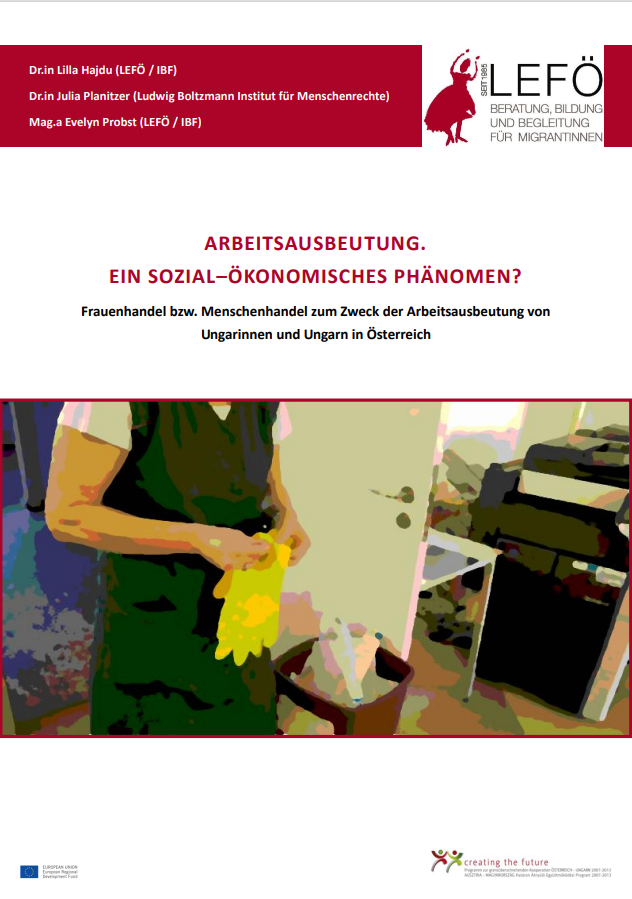Arbeitsausbeutung. Ein sozial-ökonomisches Phänomen? Frauenhandel bzw. Menschenhandel zum Zweck der Arbeitsausbeutung von Ungarinnen und Ungarn in Österreich
Labour exploitation in the context of trafficking in women and human beings has many faces. Despite existing debates on trafficking in women and human beings in general, the discussion of the various forms of implicit labour exploitation remains underrepresented. The following report “Arbeitsausbeutung. Ein sozial-ökonomisches Phänomen?” aims to address this situation by focusing on labour exploitation in the context of trafficking in women and human beings between Austria and Hungary. As a country bordering Austria, Hungary joined the European Union on 1 May 2004 as part of the EU’s eastward enlargement. After a seven-year transition period, Hungarian citizens gained full access to the Austrian labour market in 2011 and thus legal equality as EU citizens. When considering human trafficking, a causal link is usually established between legal inequality and being trafficked. From this reductionist perspective, trafficked persons would always be legally unequal and legally equal persons would never be trafficked. However, the premise of the following report was the assumption that the legal dimension of inequality in itself cannot be sufficient to explain human trafficking between EU countries. The objective was therefore to point out that women and men can be affected by human trafficking despite enjoying legal equality. In this sense, despite the absence of the factor of legal inequality, trafficked persons must be recognised as such and thus gain access to their rights. Against this backdrop, the interest in finding out whether trafficking in women or human beings for the purpose of labour exploitation of Hungarians takes place in Austria despite legal equality leads through this report. In order to discuss this question, the first part of the report analyses the current Austrian legal framework. Subsequently, surveys from expert interviews and evaluations of files from the Intervention Centre for Trafficked Women (LEFÖ / IBF) broadened the perspective on the subject of the study. The analysis of the data materials revealed various risk factors that set the framework for labour exploitation despite the legal equality of Hungarians in Austria.
